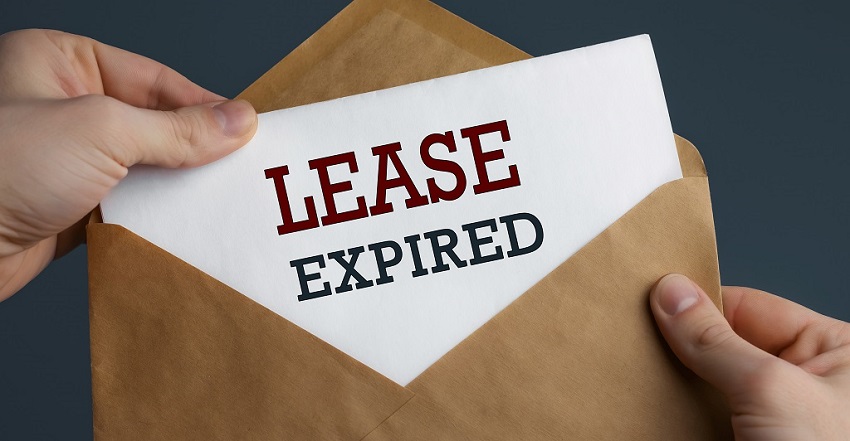When a lease agreement between a tenant and a landlord comes to an end, both parties need to understand the implications and legalities involved. Many tenants wonder how long they can stay in a rental property after their lease expires. In this article, we will explore how long can a tenant stay after the lease expires and shed light on their rights and responsibilities.
Lease agreements typically have a specific duration, known as a fixed-term lease. At the end of this period, the lease expires, and the tenant is expected to vacate the premises unless they enter into a new agreement with the landlord. Tenants must be aware of the lease expiration date and plan accordingly.
Month-to-Month Tenancy
Sometimes, when a fixed-term lease ends, it automatically transitions into a month-to-month tenancy. This arrangement allows the tenant to continue living in the rental property month-to-month without signing a new lease. The advantage of a month-to-month tenancy is its flexibility, allowing the tenant to terminate the agreement with proper notice or negotiate new terms.
Fixed-Term Lease
A fixed-term lease has a specified start and end date. Once the lease expires, the tenant no longer has a legal right to occupy the property unless they renew the lease. If the tenant continues to stay without a renewed agreement, they are considered a holdover tenant, which may lead to legal consequences.
Automatic Renewal
In some cases, lease agreements include automatic renewal clauses. These clauses state that if the tenant does not give the notice to terminate the lease within a specific timeframe, the lease automatically renews for another fixed term. Tenants must review their lease agreement thoroughly to understand if automatic renewal applies and what the notice period entails.
Notice Period
The notice period is an essential aspect of lease expiration. Landlords and tenants must provide written notice to terminate a lease or initiate a new agreement. The length of the notice period can vary depending on local laws and the terms outlined in the lease agreement. Tenants need to understand the notice requirements to avoid any misunderstandings or potential legal issues.
Landlord’s Rights and Responsibilities
After a lease expires, landlords can reclaim their property if the tenant does not renew or move out. However, landlords must follow the legal eviction process and cannot resort to self-help measures. Understanding the rights and responsibilities of landlords helps tenants navigate the post-lease period confidently.
Tenant’s Rights and Responsibilities
Tenants also have rights after their lease expires. Depending on local laws, tenants may have a right to continue residing in the property under certain conditions, such as month-to-month tenancy or when a new lease agreement is being negotiated. Tenants need to understand their rights and communicate with the landlord to ensure a smooth transition.
Negotiating a New Lease
When a lease expires, tenants can negotiate a new lease agreement with their landlord. This negotiation can involve discussing changes in rent, lease terms, or any necessary repairs or modifications. By engaging in open and honest communication, tenants can potentially secure a favorable lease renewal.
Eviction Process
If a tenant does not leave the property after the lease expires and fails to negotiate a new agreement, the landlord may proceed with eviction. Eviction is a legal process that varies depending on local laws and requires the landlord to obtain a court order to remove the tenant from the premises. Tenants must understand their rights during an eviction and seek legal advice if necessary.
Subletting and Assigning the Lease
In some cases, tenants may have the option to sublet their rental unit or assign the lease to another individual. Subletting involves temporarily renting out the property to another person, while assigning the lease transfers the entire lease agreement to someone else. However, tenants should review their lease agreement and seek the landlord’s permission before pursuing these options.
Legal Actions
If tenants overstay their lease without the landlord’s consent, landlords may take legal actions to regain possession of the property. Legal actions can include filing a lawsuit, obtaining an eviction order, and potentially seeking financial damages resulting from the tenant’s holdover period. Both tenants and landlords need to consult legal professionals to understand the specific legal processes in their jurisdiction.
Finding New Accommodation
When a lease expires and tenants are unable to reach a new agreement with their landlord, they need to start searching for alternative accommodation. Planning, researching available options, and understanding the local rental market can help tenants secure a new home without undue stress.
Conclusion
Lease expiration marks an important phase in the landlord-tenant relationship. Tenants should be aware of their lease terms, expiration dates, and the legalities involved to ensure a smooth transition. By understanding their rights and responsibilities, tenants can confidently navigate the post-lease period and make informed decisions about their housing situation.





